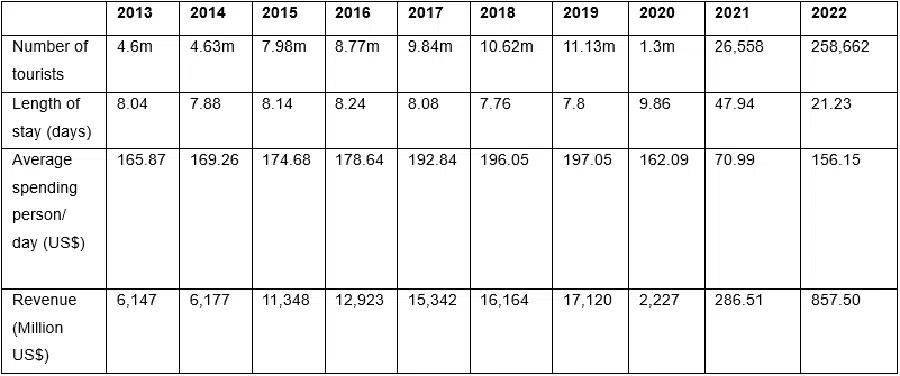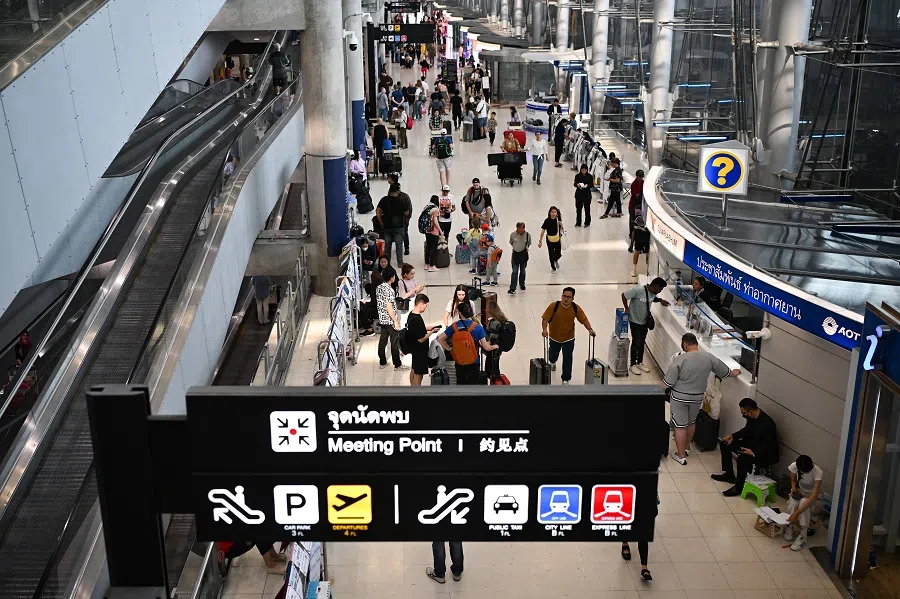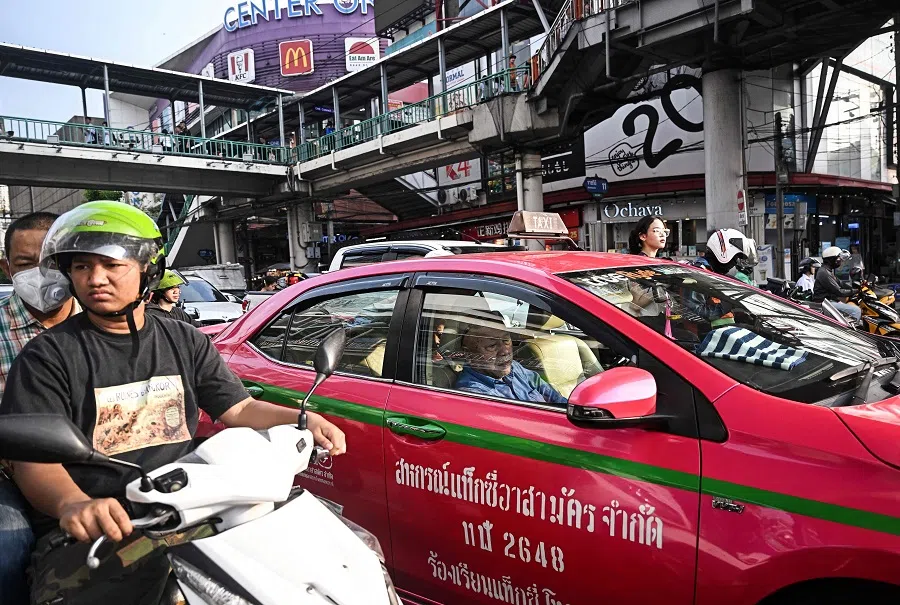Thailand-China visa-free policy: Boon or bane for tourism?
Thailand’s new visa-free policy for Chinese tourists is a double-edged sword. While it is more convenient for Chinese tourists to access Thailand, which is good for the Thai economy, it also makes it easier to engage in activities such as scam call centres and human trafficking.

The temporary visa-free travel scheme for Chinese tourists to Thailand was launched in September 2023 after Covid-19 badly impacted tourism. It has become permanent after both countries officially agreed to waive visa requirements this year. While this has improved accessibility for Chinese tourists going to Thailand, concerns persist among Chinese visitors and Thais about the potential misuse of the policy by a minority of individuals.
Thailand is a longstanding favourite among international travellers, particularly Chinese tourists. Before the outbreak, Thailand’s tourism sector was thriving, with a growing number of Chinese tourists contributing to tourism revenue and the economy. According to data from the Ministry of Tourism and Sports (Table 1), the number of Chinese visitors rose steadily from 4.6 million in 2013 to a peak of 11.13 million in 2019.
To revive tourism following the pandemic and global economic recession, the Thai government introduced a temporary visa-free entry for foreign nationals, including Chinese citizens...
Boosting Chinese tourism in Thailand
During the pandemic, the number of Chinese tourists arriving in Thailand dropped sharply to 1.3 million in 2020 and to a record low of 26,558 in 2021. This was due to stringent travel restrictions imposed by Thailand and China. In terms of revenue, Chinese tourists contributed US$17.12 billion in 2019. This fell to US$286 million in 2021.

To revive tourism following the pandemic and global economic recession, the Thai government introduced a temporary visa-free entry for foreign nationals, including Chinese citizens, on 25 September 2023. This took effect in the high-season periods between November and March (which includes the Lunar New Year). This initiative was followed by a permanent mutual visa exemption agreement between China and Thailand, which took effect on 1 March 2024.
Under this policy, Chinese tourists are allowed to stay in Thailand for up to 30 days per visit, with a maximum of 90 days within a 180-day period. As of 15 July 2024, the policy was expanded, increasing the stay period from 30 to 60 days.
These measures were implemented to attract Chinese tourists, who, due to extended holiday periods, are among the region’s most frequent travellers. By simplifying entry procedures, the policy has also benefited other sectors. To cater to Chinese tourists, Thais working in sectors such as sales, transportation and logistics increasingly need to be proficient in the Chinese language. For example, there are educational institutions in Thailand offering Chinese language courses for Thais. This helps them compete for job positions in the market.
Thai authorities believe the policy is re-establishing Thailand as a leading destination for Chinese travellers.
Is the visa-free policy working?
The mutual visa arrangement has led to an uptick in tourist arrivals in Thailand. Between January and September 2024, Thailand recorded 20 million international tourist arrivals, with Chinese tourists ranking first, accounting for 5 million — an increase of 110% compared to the same period in 2023. However, this number remains well below the peak levels seen in 2019. While recent data on average spending per tourist is still unavailable, Thai authorities believe the policy is re-establishing Thailand as a leading destination for Chinese travellers.

The visa-free policy, however, has encountered several challenges. First, the sustained growth of Chinese tourist numbers remains uncertain. Although China has eased some travel restrictions, the number of flights to Thailand has yet to return to pre-pandemic levels. The number of scheduled flights on the China-Thailand route from January to December 2023 was 5,828. However, 500 flights were cancelled, resulting in an actual total of 5,328 flights. This figure represents only 48.8% of the pre-pandemic levels in 2019, suggesting that airlines were not satisfied with the current passenger demand and proactively cancelled several flights.
Moreover, many Chinese travellers are now opting for domestic destinations over international travel. Reports from China’s travel websites indicate that the economic impact of the pandemic has heightened price sensitivity. This has hindered the recovery of travel, not only in Thailand but also across multiple Southeast Asian countries.
Thailand’s visa-free policy and simplified entry procedures have also opened opportunities for a minority of individuals to exploit legal loopholes.
Unexpected side effects of going visa-free
Thailand’s visa-free policy and simplified entry procedures have also opened opportunities for a minority of individuals to exploit legal loopholes. Despite restrictions on the length of stay, some Chinese individuals have reportedly used Thailand as a base for fraudulent businesses. In Chonburi province, for example, there was a scam involving amulets at Khao Chi Chan temple, where Chinese tourists were sold overpriced counterfeit amulets. These schemes often involve employing Thai citizens to target other Chinese nationals. Additionally, cases of corruption among Thai officials have further complicated the situation, making it difficult for the authorities to monitor and enforce legal measures.
Another pressing issue is the rise in call centre scams, many of which are believed to be operated by Chinese-origin criminal groups based in Myanmar, Laos and Cambodia. There is a rumour that Chinese tourists may be abducted upon arriving in Thailand and subsequently taken to northern Myanmar, where they are forced to work in call centre scams. Some scammers exploit the visa-free policy to enter Thailand and use it as a transit point to neighbouring countries. These scammers also try to target Chinese tourists when they are holidaying in the kingdom.

Criminal activities such as human trafficking, particularly the kidnapping of Chinese nationals for ransom, have also surfaced. Before the implementation of the visa-free policy, the 2023 Chinese blockbuster No More Bets depicted the human trafficking of Chinese citizens in Southeast Asia, heightening concern among potential Chinese visitors. The film was even banned in Cambodia due to the reputational damage to the kingdom.
The policy’s long-term success will depend on the government’s ability to balance the economic benefits of the visa-free policy with the need to manage security risks and combat crime.
In response to these concerns, Thai authorities have held discussions with China’s ambassador to Thailand to address the misinformation from the film and reassure tourists about their safety. But even before the film’s release, the Chinese embassy in Bangkok issued a safety advisory for Chinese citizens travelling to Thailand.
While the Thailand-China visa-free policy is expected to revive Thailand’s tourism sector post-Covid-19, security concerns remain, requiring Chinese tourists and locals to exercise caution. The ongoing presence of criminal activities underscores the need for the Thai government to address these security risks comprehensively. The policy’s long-term success will depend on the government’s ability to balance the economic benefits of the visa-free policy with the need to manage security risks and combat crime.
This article was first published in Fulcrum, ISEAS – Yusof Ishak Institute’s blogsite.



![[Big read] When the Arctic opens, what happens to Singapore?](https://cassette.sphdigital.com.sg/image/thinkchina/da65edebca34645c711c55e83e9877109b3c53847ebb1305573974651df1d13a)
![[Video] George Yeo: America’s deep pain — and why China won’t colonise](https://cassette.sphdigital.com.sg/image/thinkchina/15083e45d96c12390bdea6af2daf19fd9fcd875aa44a0f92796f34e3dad561cc)
